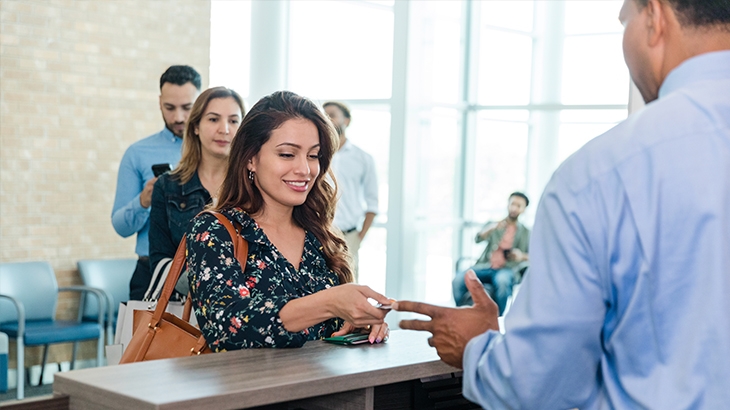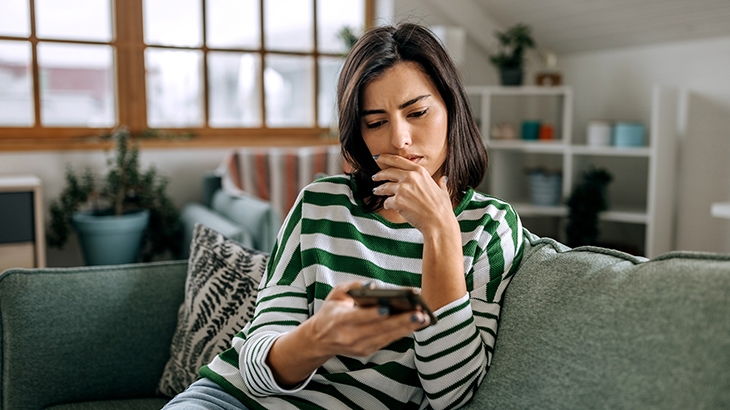Money Order vs Cashier's Check
Money orders and cashier's checks are forms of payment that are used instead of cash, personal checks, debit cards, or credit cards, all of which are known as payment instruments. Although the two are similar, there are some key differences between money orders and cashier's check that are important to know, read on for more!

What is a Cashier's Check?
This is a check that is issued and guaranteed by a financial institution, such as a bank. When someone requests a cashier's check, they provide the bank with the amount of the cashier's check plus a fee with a withdrawal from their account. The bank then prints and issues a check in the requested amount that has all information printed on it. Because a cashier's check is guaranteed by the bank, it is considered a secure form of payment.
- Can be issued for high dollar amounts
- There is a fee to have a cashier's check made—at WaFd Bank, that fee is $8.
- Money is withdrawn from a bank account
- Guaranteed by the bank that issued it, which is why most banks require you to have an account to get one
- All information is printed on the cashier's check, including amount, payee, and memo (such as a reference number)
- Used when a personal check is not accepted or when someone wants to keep their account information private
- Required for large purchases or transactions such as buying a car or for a down payment on a house
- Includes many security features to prevent replication by fraudsters
What is a Money Order?
Money orders are bought with cash or card, and are considered prepaid, so anyone can buy them. When you request a money order, you provide the issuer (the company selling you the money order) with the amount of the money order plus a small fee to cover any associated costs. The issuer then prints a money order in the requested amount. Money orders usually come with a receipt that has a serial number or money order number with the dollar amount and possibly the issuing location. This way, you can use that information to track your money order online through the issuer's website and see when it's cashed.
- Cost less than cashier's checks at somewhere between $1 and $5 each
- Usually issued in amounts of $1,000 or less.
- Can be bought from different sources, including banks, post offices, and convenience stores
- Used as payment for things like bills or buying an item from someone instead of using cash
- Only printed with the dollar amount; you must fill in the rest of the information yourself
- Many people like to use money orders to keep their financial information private (like where they bank) or when they don't have a bank account
- Contain security features, but are commonly used in scams
Differences Between Cashier's Checks and Money Orders
| Money Order | Cashier's Check | |
|---|---|---|
| Cost | $1-$5 | $8-$15 |
| Limits | About $1000 | Generally no limit |
| Uses | Smaller purchases, rent, sending money through the mail | Large purchases, down payment on a house or car, person-to-person transactions |
| Security | Pre-paid, doesn't bounce | Guaranteed by the bank |
| Acceptance | Widely accepted | Widely accepted |
| Where to buy | Post office, grocery store, gas stations, and more | Banks or credit unions (usually must have an account to buy) |
| Needs a bank account to buy | No | Yes |
How to Deposit a Cashier's Check
Cashier's checks are deposited just like a personal check. Sign the back (known as endorsing) and then deposit it in person at the bank, through the ATM, or using mobile photo deposit in your bank's mobile app.
Cashier's Check vs Personal Check
Personal checks have numbers printed at the bottom. The first is your bank's routing number, the second is your account number, and last is the check number. These numbers tell the scanner where the money is being paid from. Personal checks can also bounce, which means that the money is not paid from the check issuer, and fees can apply when this happens. Cashier's checks are issued and guaranteed by the bank. Funds are taken from a person's account at the time the check is printed, so they don't bounce. They also have multiple security features to prevent fraud, so they're considered much more secure than a personal check.
When Should You Choose a Money Order
If the purchase is smaller and the seller accepts money orders, a money order can be a less expensive and still secure option. Other reasons many people choose a money order is that buying one doesn't require a bank account, they want to pay lower fees, are making a smaller transaction, or want to send money through the mail. They are also more widely available and easier to get. Money orders are useful when a reliable and guaranteed form of payment is necessary, such as rent payments. They can also be bought with cash which can be useful but remember to only buy them from reputable sources and keep all receipts for your records, just in case.
When Should You Choose a Cashier's Check
If the purchase is large, such as buying a car, a cashier's check is usually the required method of payment. You might also consider a cashier's check if you're looking for extra security, want to protect your personal information, or whoever you are making the payment to requires it for one reason or another. They are also a secure option, guaranteed, and easy enough to verify that it's legitimate, so they are also a great choice when you want to make sure the money is paid, such as the down payment for a house.
How to Make Sure a Cashier's Check or Money Order is Legit
If you have questions about a cashier's check, you can call the bank that issued it and ask if it's a legit check. The banker will ask questions about the check such as the amount, whose name is on the payer line, and others to find the check in their system. Because cashier's checks are not tied directly to a personal or business account, they're able to you if it was legitimately issued, if it's been altered in some way, or if it's completely fraudulent.
When verifying a money order, call the number at the bottom or look up the company online to find their phone number and call to verify. Money orders are used much more often in scams than cashier's checks, so it's always a good idea to verify before you deposit it to your account. When calling, the company should be able to tell you the money order number and the amount it was issued for, but because the buyer writes in all other information, they can't tell you more than that. After getting confirmation that it's legitimate, deposit to your money order to your account.
WaFd Bank is Here to Help
While we don't issue money orders, WaFd Bank is here for your banking needs, including cashier's checks. With checking account options to save you money, and others that give you rewards and benefits, you'll find some of the best digital tools around to help you manage your money, like Voice-Activated Banking. Find out for yourself why WaFd was voted Best Bank and stop by your local branch, open an account online, or give us a call at 800-324-9375 to open an account and learn more.
Did you find this article helpful? Share it!


